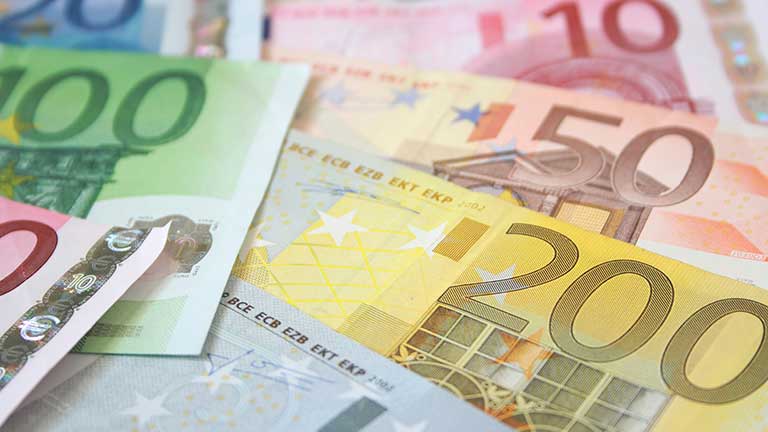The preliminary 2% inflation rate registered last month across the euro area goes beyond the European Central Bank’s target of close to, but below, that figure.
As a result, the news is likely to bolster pressure from some European nations for the bank to end its extraordinary monetary policy support for the bloc’s economy. But analysts said the data doesn’t meet the conditions the bank has outlined as necessary to end the measures.
If confirmed, February will mark the first time in four years that inflation has risen to 2% across the eurozone.
It marks a significant jump from the inflation position as recently as November last year, when the rate was at 0.6% across the 19-nation bloc.
Eurostat said this was largely due to rising energy prices, which saw growth of almost one percentage point, followed by food, alcohol and tobacco and services.
This energy-driven rise was predicted by the ECB’s president Mario Draghi in January, who said at the time its effects would be “transient”.
He also explained that in order to start phasing out the bank’s €60bn per month bond buying programme, much firmer evidence that inflation is performing to target will be needed.
This would mean an increase sustained over a longer period, that was able to endure without extraordinary support from the bank and that applied to the eurozone as a whole.
The eurozone’s core inflation, which excludes transitory or temporary price volatility in sectors like energy, remains low, at 0.9%.
Some stronger euro area economies – such as Germany, which argues the policies are weighing on its domestic economy – are pressuring the bank to bring its programme of bond buying and low interest rates to an end.
The bank recently extended these until at least the end of 2017, although it trimmed the size of its monthly bond purchases by €20bn from April – a move Jennifer McKeown, chief European economist at analysis firm Capital Economics said “will prove warranted”.
“We do not think that the latest rise in inflation will be sustained,” she said. “Our judgement remains that a slowdown is coming. Political risks may well weigh on sentiment and activity.”
She said the firm expects the bank will keep its commitment to its continuing its bond buying programme until the end of the year, and longer if necessary.
“Purchases may well be tapered to zero in the first half of 2018, but we do not envisage any interest rate hikes before the end of that year,” she added.













